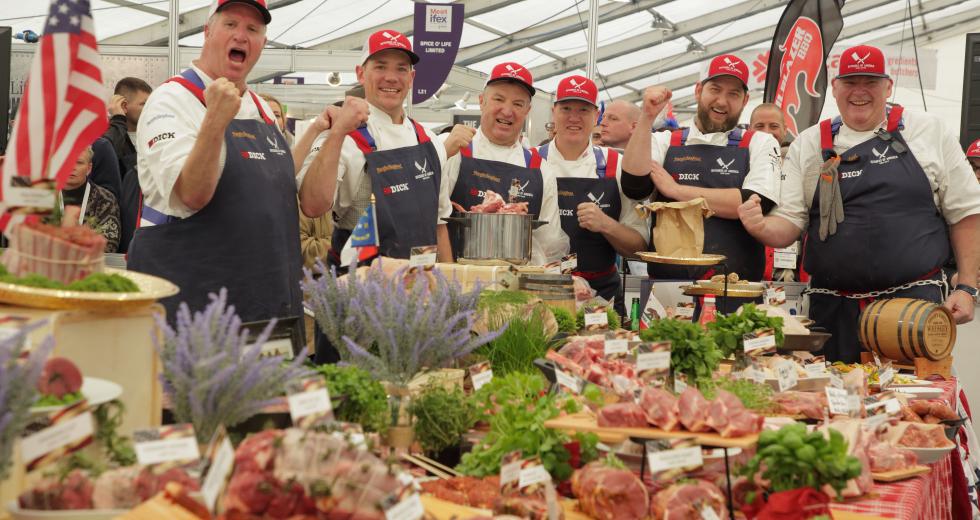Originally conceived as a Pan Pacific pissing match, the World Butchers’ Challenge has since exploded into a truly global competition. It began in 2011 when Beef + Lamb New Zealand CEO Rod Slater bet an Australian colleague a bottle of whiskey that his country boasted the better butchers. Australia won the first grudge match, then repeated in 2012 before New Zealand grabbed the 2013 title, with teams from England and France joining the fray in subsequent years.
After starting with two nations in 2011, 12 countries participated in the 2018 event, held in Belfast, including first-timers Bulgaria, Italy, South Africa, Greece and the U.S. squad led by Sacramento’s own Danny Johnson and Paul Carras, of Taylor’s Market in Land Park.
“There is a consumer trend around interest in where meat comes from, and we think that the WBC helps to raise the profile of butchers and the story they’re able to tell,” says Ashley Hall, chief executive of the World Butchers’ Challenge Council. “They have an important part to play in the farm-to-table story.”
Related: Demand for locally and responsibly sourced food has helped revive the butcher shop
Related photo gallery: Longhorn Meat Company
Johnson first heard about the competition in 2011, but he never imagined that he might one day compete. “I thought it was just a thing between New Zealand and Australia, I never knew it was going to grow into where we are now,” he says. When The Butchers Guild founder Tia Harrison contacted him about captaining the first-ever American team at WBC 2018, Johnson accepted only under the condition that he could bring along Carras, his “right-hand man” and longtime Taylor’s meat counter employee.
With Carras on board, Harrison and Johnson swiftly filled out the American team with respected butchers from Texas, Virginia and South Carolina. “We were together the shortest amount of time of all the teams,” Johnson says. The group only assembled for five practices, and much of that time was spent mastering the WBC’s unusual format. “It’s not just cutting up meat,” Johnson says. “You get judged on how fast you are, how well you work together as a team, how clean you are.”
With the March 2018 event approaching, Johnson brought the American team to Taylor’s for intensive practice sessions in January and February, cutting under the clock in a “competition-style format.” To simulate the frenzied environment of the WBC, Johnson even piped in crowd noise. “It actually paid off, because in Belfast it was so noisy, it was hard for us to communicate,” he says.
On game day, the pressure rose to another level. Johnson and Carras regularly conduct classes and perform public demonstrations, so they weren’t bothered by the chanting crowds, the intrusive camera crews or the clipboard-wielding judges. However, some of their less-experienced teammates struggled in the spotlight, and the Americans were penalized for mental mistakes. “A lot of good butchers can cut a great meat counter, but going on stage and competing, it’s not for everyone,” Carras says.
Experience and teamwork made the difference for the winners at the World Butchers’ Challenge. While the far-flung American squad squeezed in five practice sessions, the victorious Irish team trained together every Sunday for an entire year. WBC veterans New Zealand and Australia took second and third, while the Americans placed a respectable sixth, second best among the first-time teams but a couple mistakes short of glory. “I know we were so close from placing top three,” Carras says.
One tweak Carras wants to make for 2020: pick a better team song than James Brown’s “Living in America,” from the movie Rocky IV. “I’m a big Rocky fan, and I thought it didn’t make sense, because Apollo Creed comes out to this song and he dies,” Carras says. “Definitely change our song next time.”



